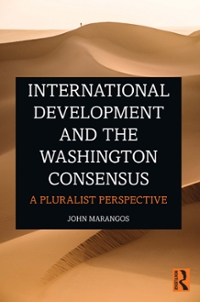Question
1 Background The case of Steven V. Whitmill ('Whitmill') vs. Warner Bros. Entertainment Inc. ('WB') looks at the applicability of copyright laws to tattoos. This
1 Background
The case of Steven V. Whitmill ('Whitmill') vs. Warner Bros. Entertainment Inc. ('WB') looks at the applicability of copyright laws to tattoos. This case has a heavy focus on a couple specific aspects of copyright law, namely if tattoos are copyrightable, is human skin an applicable medium according to the law, and the difference between parody and satire under 'fair use' doctrine (particularly satire, which is not fair use, versus parody). The focus of this study is how to apply economic analysis to this particular case. The legal questions that arise are not of the interest of this assignment.
Whitmill is an award-winning tattoo artist whose most prominent work is the facial tattoo he designed for Mike Tyson (figure 1). In the Warner Bros. comedy, The Hangover 2, a character gets a "virtually exact reproduction"1 of the tattoo. Whitmill sues WB, seeking an injunction to the release of the film and all promotional materials on the grounds that his works were reproduced without permission and he will suffer irreparable harm. Warner Bros.'s main contention is that tattoos are not protected under copyright law, and even if this tattoo is protected by copyright law, the 'fair use' doctrine gives WB legal permission for this film. Note that this case pertains to the reproduction of Tyson's tattoo, not Tyson (and his tattoo) appearing the film itself. The questions of joint-ownership of a tattoo, while interesting, are not part of this study. Whitmill submitted evidence that Tyson signed a release form agreeing that the facial tattoo is property of Whitmill's tattoo studio (essentially a licensing agreement). Whitmill filed for an injunction about one month prior to the film's theatrical release. The injunction was denied, allowing WB to continue promoting the film and opening on-time. The judge who denied the injunction suggested that Whitmill was very likely to win his case going forward, which likely prompted WB and Whitmill to reach a settlement out of court. The terms of the settlement are undisclosed.
Question:
3.We learned the economic rule: an injunction ought to be awarded when bargaining is possible (i.e. number of parties is small). In this case bargaining is certainly possible, as they ultimately settled, but the relative value of the property right is disproportionate. Explain why an injunction would not have been the appropriate remedy in this case; how would the bargaining game for the right to use the 'pirate tattoo' have been different had Whitmill succeeded in getting an injunction? Use this case as an example for the following rule: an injunction should not be issued when it can be shown that the value of a nuisance greatly exceeds the damages that it is imposing. (Cue: think about who value the things most and make up some number to explain this)
Step by Step Solution
There are 3 Steps involved in it
Step: 1

Get Instant Access to Expert-Tailored Solutions
See step-by-step solutions with expert insights and AI powered tools for academic success
Step: 2

Step: 3

Ace Your Homework with AI
Get the answers you need in no time with our AI-driven, step-by-step assistance
Get Started


